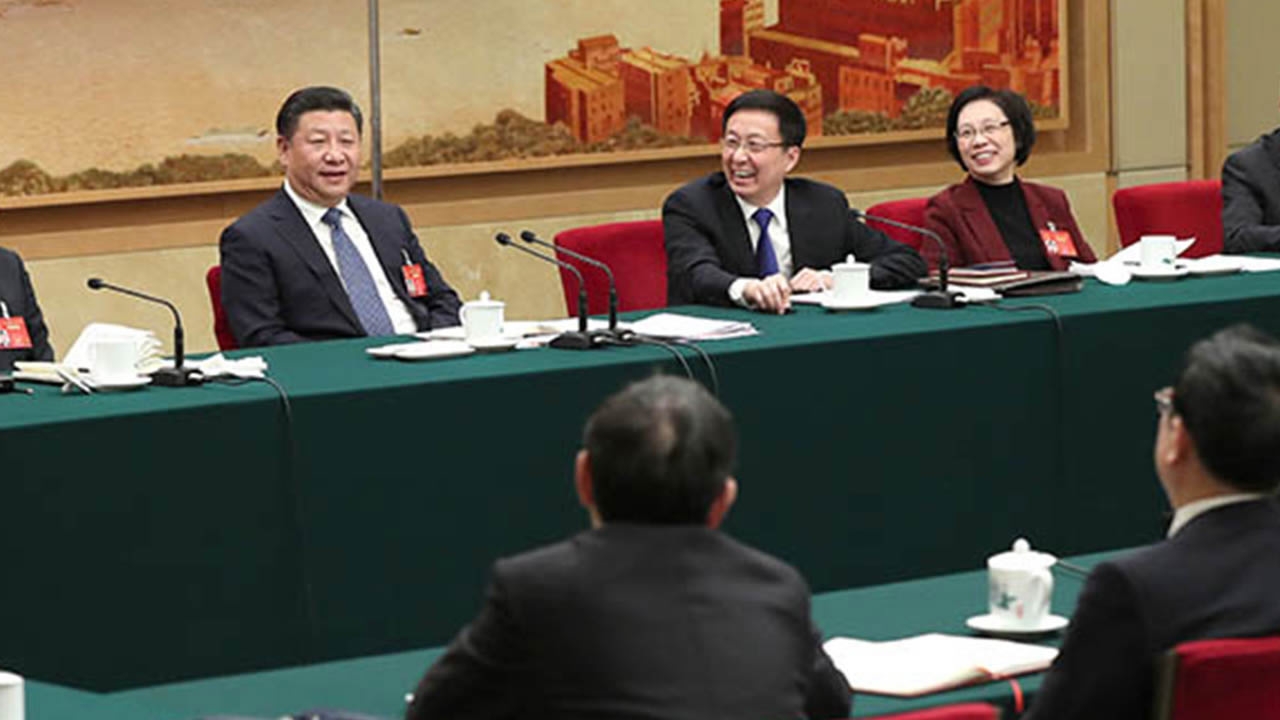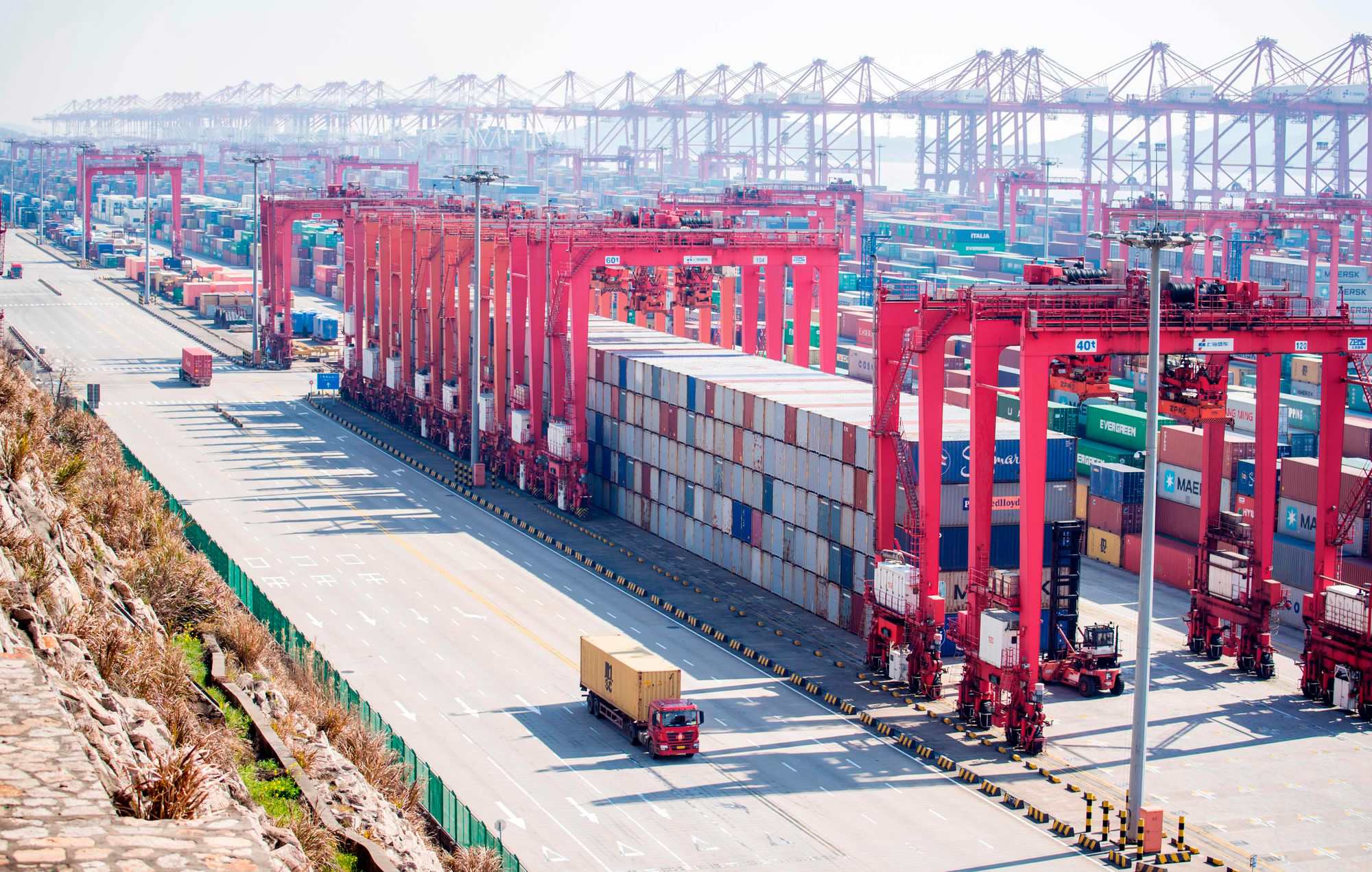
Politics
22:30, 05-Mar-2017
Xi Jinping champions China’s opening-up in all respects
Updated
10:58, 28-Jun-2018

Chinese President Xi Jinping said on Sunday that China will continue to open up in all respects to further liberalize and facilitate trade and investment, during a panel discussion with national lawmakers at the annual session of the National People's Congress.
"The door of China's opening up will not close," said Xi, who is also general secretary of the Communist Party of China Central Committee and chairman of the Central Military Commission, as he met with the Shanghai lawmakers' delegation.
Shanghai is among China’s most economically developed regions and a pilot Free Trade Zone (FTZ) was established there in 2013 for the purpose of “exploring new paths and accumulating good experience for all-round reform and opening-up”, according to the FTZ’s official webpage.
Xi praised Shanghai for its latest achievements in innovating growth, optimizing the economic framework and deepening reform, and expressed his hope that the city would keep on pioneering in all areas.
Xi also stressed the strategic significance of the creation of the FTZ, encouraging Shanghai to continue to be the benchmark of China’s opening-up to the whole world.
The development of the Shanghai FTZ was expected to contribute to China’s One Belt One Road initiative, Xi added, referring to China's proposal of building a trade and infrastructure network connecting Asia with Europe and Africa along ancient trade routes.

This picture is taken on February 13, 2017 shows containers organised in stacks at Yangshan Deep Water Port, part of the Shanghai Pilot Free Trade Zone in Shanghai. /CFP Photo
This picture is taken on February 13, 2017 shows containers organised in stacks at Yangshan Deep Water Port, part of the Shanghai Pilot Free Trade Zone in Shanghai. /CFP Photo
Xi’s comments, chiming with his keynote speech at this year’s World Economic Forum in Davos, Switzerland - in which he called for joint efforts to chart the course of economic globalization and forge new models of global growth - come amid a rising protectionist mood worldwide, stoked by people’s concern at missing out on the benefits of globalization.
China achieved a growth rate of 6.7 percent in 2016, accounting for about a third of world growth, despite the pressure to reduce overcapacity and shift from a mainly investment- and export-driven traditional model to a more sustainable consumer-driven economy.
One measure of economic openness is foreign direct investment, which has continued to rise over the past four years in China. The latest data released by the Ministry of Commerce last month showed that China has taken in close to half a trillion US dollars in foreign investment since 2013, and the average growth rate of absorbing foreign investment in the high-tech industry was about 12 percent.
Foreign direct investment in the Chinese mainland rose by 4.1 percent year on year to reach 813.22 billion yuan (around 118 billion U.S. dollars) in 2016.

SITEMAP
Copyright © 2018 CGTN. Beijing ICP prepared NO.16065310-3
Copyright © 2018 CGTN. Beijing ICP prepared NO.16065310-3